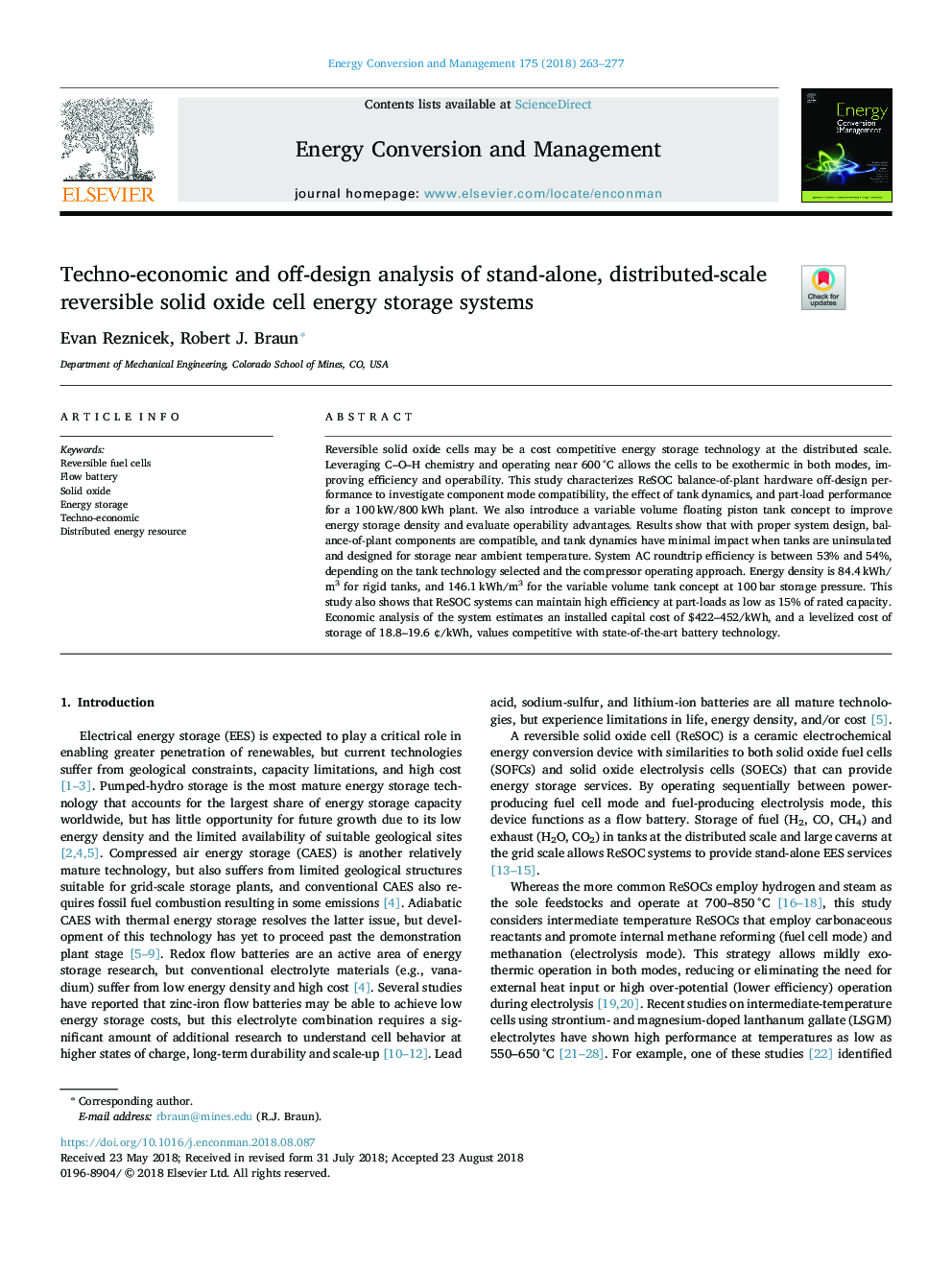| Article ID | Journal | Published Year | Pages | File Type |
|---|---|---|---|---|
| 10140179 | Energy Conversion and Management | 2018 | 15 Pages |
Abstract
Reversible solid oxide cells may be a cost competitive energy storage technology at the distributed scale. Leveraging C-O-H chemistry and operating near 600â¯Â°C allows the cells to be exothermic in both modes, improving efficiency and operability. This study characterizes ReSOC balance-of-plant hardware off-design performance to investigate component mode compatibility, the effect of tank dynamics, and part-load performance for a 100â¯kW/800â¯kWh plant. We also introduce a variable volume floating piston tank concept to improve energy storage density and evaluate operability advantages. Results show that with proper system design, balance-of-plant components are compatible, and tank dynamics have minimal impact when tanks are uninsulated and designed for storage near ambient temperature. System AC roundtrip efficiency is between 53% and 54%, depending on the tank technology selected and the compressor operating approach. Energy density is 84.4â¯kWh/m3 for rigid tanks, and 146.1â¯kWh/m3 for the variable volume tank concept at 100â¯bar storage pressure. This study also shows that ReSOC systems can maintain high efficiency at part-loads as low as 15% of rated capacity. Economic analysis of the system estimates an installed capital cost of $422-452/kWh, and a levelized cost of storage of 18.8-19.6 ¢/kWh, values competitive with state-of-the-art battery technology.
Related Topics
Physical Sciences and Engineering
Energy
Energy (General)
Authors
Evan Reznicek, Robert J. Braun,
